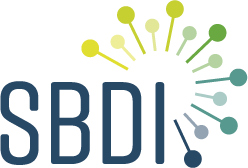The SBDI Bioatlas supports the publication of four classes of datasets – Resource metadata, Checklists, Occurrence data and Sampling event data, using widely accepted biodiversity data standards. Most biodiversity data can be mobilized using these core classes of datasets, including e.g. specimen data, spontaneous observation data, structured research or monitoring data, molecular data etc. In addition data can be enriched by using suitable extensions.
When you share your data with SBDI you will become a data partner. SBDI publishes datasets directly from organizations, authorities, or affiliated individuals or researchers. Citizen scientists who wish to contribute with records can do so indirectly by participating in the growing number of citizen science projects available that publish their datasets through SBDI (such as the Swedish Bird Survey and Artportalen).
SBDI aims to deliver all published data to the Global Biodiversity Information Facility (GBIF). A data partner will be endorsed by the GBIF community. More information can be found at the ‘Share data with GBIF‘ page.
Select publishing tools
SBDI provides several tools to manage, mobilize and publish your data. The three main tools are the Integrated Publishing Toolkit (IPT), the Swedish instance of the Living Atlases Platform (the SBDI Bioatlas), and the Species Observation System (SOS). There are also additional more specialized publishing tools and pipelines for non-standard data, such as Molecular biodiversity data or other types of data, such as biologging or archaeological data.
There are small differences between the publishing tools, and the choice of the most appropriate publishing tools is mainly dependent on factors such as how often the dataset is updated, if it contains sensitive species data, if specific extensions for specialized data content and format are needed, and what is the most convenient tool for the data provider.
Contact the SBDI Support Center for advice on which publishing tool to use.
Prepare for publication
Data publishers should familiarize themselves with the standards used for publishing biodiversity data. Depending on the data to be published different fields, formats and/or extensions may be used. Learn more about best practices, Darwin Core terms, mandatory fields, etc. and see spreadsheet templates for respective data class: occurrence datasets, checklists and sampling-event datasets.
Data publishers can also check datasets prior to publication and receive specific recommendations on improving and cleaning them. This can help you find duplicate records, incomplete fields and recognized inconsistencies in formatting. You can read more about this in the section on data quality an validation.
Choose a Creative Commons license for your data
SBDI supports following licenses and data publishers must assign one of the three Creative Commons licenses to any dataset:
- CC0, for data made available for any use without any restrictions
- CC BY, for data made available for any use with appropriate attribution
- CC BY-NC, for data made available for any non-commercial use with appropriate attribution
You can read more about this and what the licenses involve at our our data licenses help page.
Publish datasets
The published SBDI datasets can be accessed directly through the IPT, SOS and SBDI Bioatlas data APIs, as well as through the GBIF portal and its APIs. SBDI also provides a wide range of tools in the SBDI Bioatlas for visualizing and analyzing the published data, in addition to a set of more specialized tools for specific use cases. Regardless of which publishing tool is used, the datasets are synchronized across these SBDI services and interfaces.
Best practice in data publishing is a moving target. The tool-set is dynamic, new data types are added and the data exchange standards develop over time; as a result, the publishing process is constantly changing. SBDI will strive to keep this manual up to date, but we apologize beforehand for any omissions of new tools or new data types, or other topics we should have covered. Please contact the SBDI Support Center for comments and suggestions on this manual, and for more detailed discussions and hands-on-help in the data publishing process.
